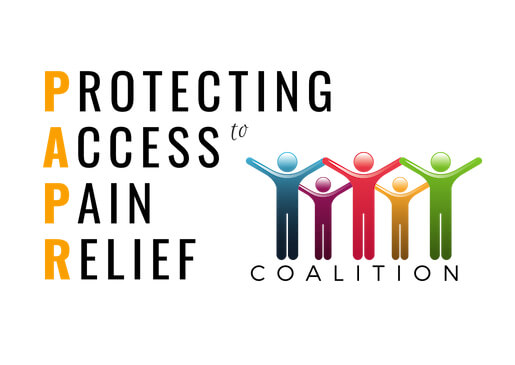May 20, 2015
Linda Porter, Ph.D.
The National Institute of Neurological Disorders and Stroke (NINDS) Office of Pain Policy/National Institutes of Health (NIH)
31 Center Drive, Room 8A31
Bethesda, MD 20892
Re: National Pain Strategy Public Comments
Dr. Porter,
The purpose of this letter is to provide comments on the draft National Pain Strategy, as it relates to a person’s ability to administer individualized self-treatment to manage pain through the use of over the counter (OTC) acetaminophen. We are the Protecting Access to Pain Relief Coalition, and we represent various industry and healthcare groups, clinicians, and anyone who has a vested interest in guaranteeing access and choice for OTC pain self-treatments. As a coalition, we are concerned that the FDA may be considering changes in regulations that have the potential to affect patient access to 500mg strength (1000mg dose) acetaminophen. Should such a regulation become final, millions of Americans might live with pain or opt for other less safe OTC analgesic options for their condition. Therefore, we ask that the final issue of the National Pain Strategy emphasize choice and access in pain self-care.
In the draft National Pain Strategy, it is clear that one overarching theme is the need for consumers to take an active role in their own individualized pain management. Additionally, in the Prevention and Care section on page twenty-one of the draft National Pain Strategy, it is noted that “high-quality pain care should be available in all settings and at all levels of care…” We support the draft language regarding the importance of individual and unique treatment plans for everyone experiencing pain. In order for this objective to be fulfilled, however, OTC pain medication must be readily accessible and available in multiple strength/dose amount choices.
Acetaminophen is the most common drug ingredient in the United States, and when used as directed, has an exceptional safety and efficacy profile. In order to be able to continue providing this widely used pain medication while working to reduce incidents of overdose, we also support the language in the draft National Pain Strategy calling for increased education and public awareness of prescription and OTC drug usage. However, education alone is not enough. Limiting access to widely-used and recognized dosages of certain pain medications, such as acetaminophen, has the potential to cause confusion, over dosing, unclear instructions, and inadequate pain relief, leading consumers to misuse lower dose formulations, substitute other available OTC pain medications that are inappropriate for certain consumers, or disregard label warnings by intentionally increasing their use of medicine. The bottom line is that reducing access and choice will have an adverse effect on our nation’s most vulnerable citizens; pain management is increasingly important for an aging population and for those suffering from multiple chronic conditions. Therefore, we ask that in the National Pain Strategy, you continue to push for evidence-based decision-making for pain treatment policies.
As a coalition, our mission is to advocate for public policy to support access to and choice of appropriate OTC pain relief while educating the public about safe use of acetaminophen. We believe that the draft National Pain Strategy sufficiently justifies the need for drug choice and access and availability of acetaminophen and other similar OTC pain relief medications. We hope that the final release of the strategy will cement the need for individualized treatment plans and support a wide range of self-treatment as a fully comparable option to clinical treatment.
We would be happy to provide any further information; you may contact us using any of the information below.
Sincerely,


